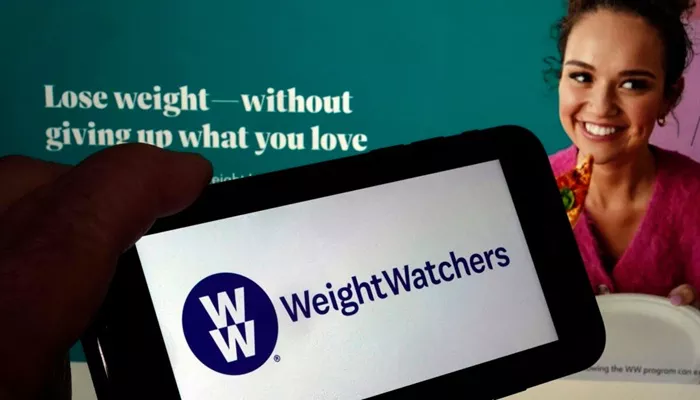Founded in 1963 as a support group for overweight New Yorkers, WeightWatchers transformed into a global enterprise, offering a points-based program that promised long-term weight loss. The brand expanded over the decades with cookbooks, groceries, weekly weigh-ins, and a food-tracking app. However, the company’s future now hangs in the balance.
WW International, formerly known as WeightWatchers, is reportedly preparing to file for bankruptcy, according to the Wall Street Journal. The company, struggling with over $1.4 billion in debt, may soon cede control to creditors if negotiations with lenders and bondholders fail.
This financial crisis isn’t surprising to many in the diet industry. Experts point to the rise of weight loss injections, like Ozempic, as a significant factor in WW’s decline. These drugs have disrupted traditional weight loss methods, including those used by WeightWatchers.
Tim Spector, a professor of genetics at King’s College London and co-founder of Zoe, a science and nutrition company, believes that WeightWatchers has run its course. “I think it’s had its day,” he said. “Most calorie counting is largely ineffective and doesn’t work for the majority of people.”
WeightWatchers has long promoted low-calorie, nutrient-dense foods to its members. However, Spector advises people to focus on eating quality, fiber-rich foods, rather than processed low-calorie options. He also argues that WeightWatchers’ “eat less, exercise more” philosophy is flawed, especially in light of the effectiveness of GLP-1 weight loss drugs like Ozempic, Wegovy, and Mounjaro. These medications control appetite, making them more effective than traditional dieting methods.
Last week, US pharmaceutical company Eli Lilly announced plans to launch a daily weight-loss pill using GLP-1 technology in the UK next year. This pill has shown promising results for managing type 2 diabetes and weight loss.
Spector believes the rise of weight loss drugs signals a shift in the way people approach weight loss. “People are realizing they don’t have to keep failing. They can take a drug that works,” he said.
The shifting landscape also spells trouble for WeightWatchers’ high-profile ambassador, Oprah Winfrey. In February 2024, Winfrey revealed she had been using weight loss medication and announced she would step down from the company’s board. Her departure caused a nearly 20% drop in the company’s stock, marking the lowest point since 2001.
While WW did not respond to a request for comment on its reported bankruptcy, its former CEO, Sima Sistani, compared the company’s adaptation to the “Ozempic era” to Netflix’s transition from DVDs to streaming.
In addition to competition from weight loss drugs, WW also faces pressure from new research in the field. Professor Roy Taylor of Newcastle University has pioneered a program showing that rapid weight loss can reverse type 2 diabetes. NHS England now offers the Path to Remission program, which uses meal replacements to limit calorie intake to 800 calories a day for those recently diagnosed with type 2 diabetes. Participants in the program have lost an average of 10kg in a year, with long-term results showing they maintain more than 6kg of weight loss after five years.
Taylor believes WW’s approach of gradual weight loss is less effective for many. “If you cut back your food intake gradually, you’ll feel hungry,” he said. “But once you’ve been on a calorie-restricted diet for a couple of days, hunger becomes minimal.”
Taylor argues that people who go to WeightWatchers often fail to recognize the extent of their weight problem. “Losing a few pounds is nothing compared to the excess weight that’s causing harm to the body,” he explained. “We need to compare ourselves to our weight at age 21 because after that, any weight gain is fat.”
Meanwhile, Slimming World, the largest weight loss club in the UK, expressed sympathy for WeightWatchers’ decline but reassured its members that it would continue to operate. The company’s managing director, Lisa Salmon, emphasized that weight loss drugs are not a “magic bullet.” Healthcare professionals need a range of treatment options, she said, and support is essential for anyone trying to lose weight, with or without medication.
Former WW coach Ruth, who asked not to be identified, agreed that in-person meetings were a key part of the WeightWatchers experience. “It’s about getting together with people who ‘get it,’” she said. However, Ruth criticized how WW handled layoffs during the pandemic, leaving the company understaffed and unable to run enough meetings.
Ruth also expressed concerns over the company’s new points system for people using weight loss drugs. “Members felt it was unfair,” she said. “They had learned new eating habits, but people on the drugs weren’t following those same guidelines.”
Professor Taylor believes that WeightWatchers’ methods are outdated. “The world has changed,” he said. “Social media and digital apps now provide forums for people to connect and discuss weight loss.” Ruth, who resigned as a WW coach, admitted it was “hugely sad” to see the company’s struggles, but added, “It’s no surprise to me.”

